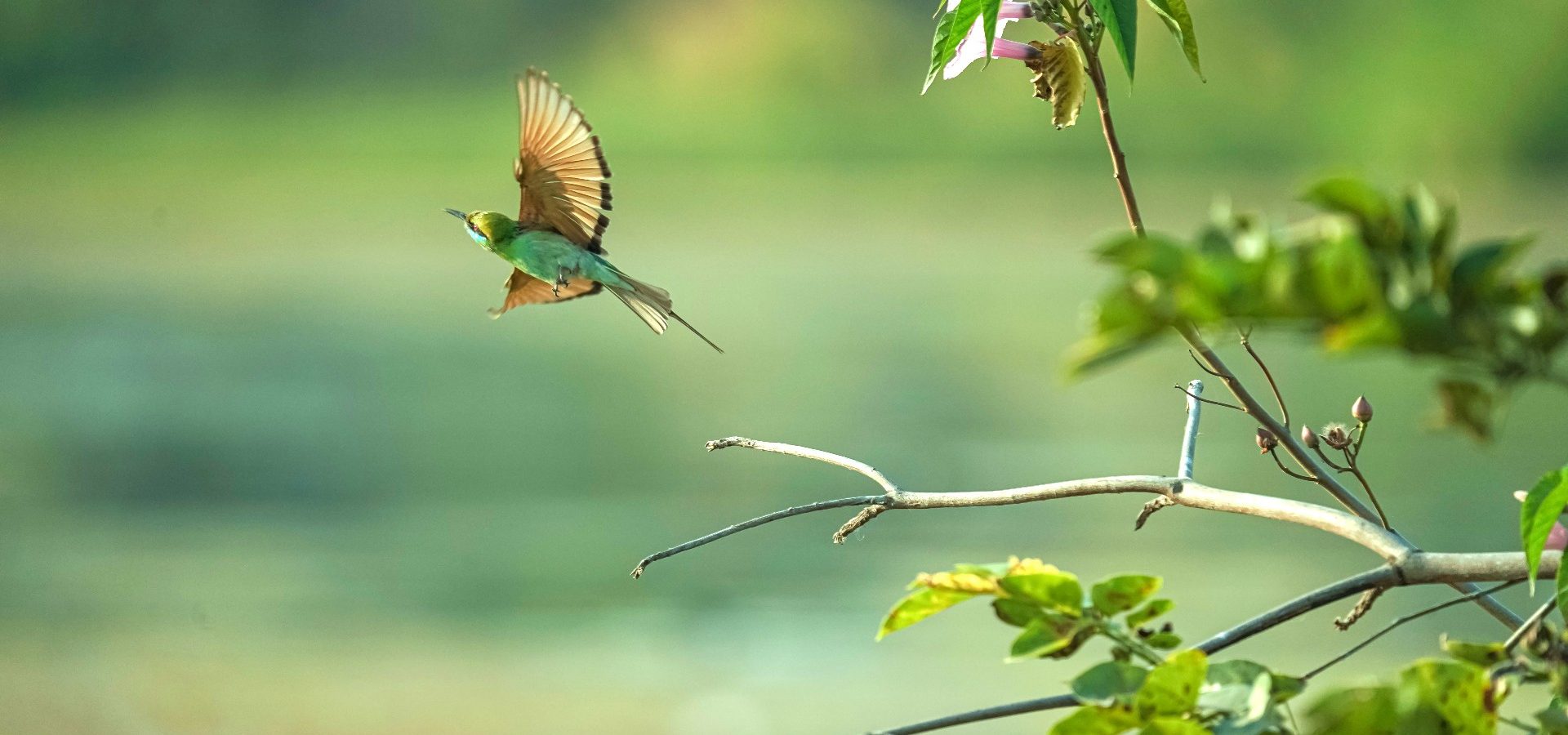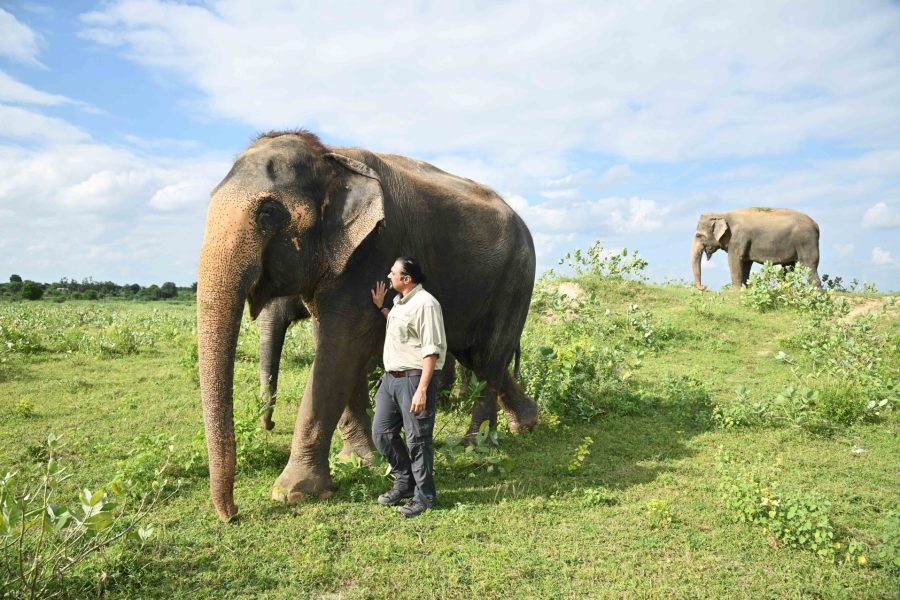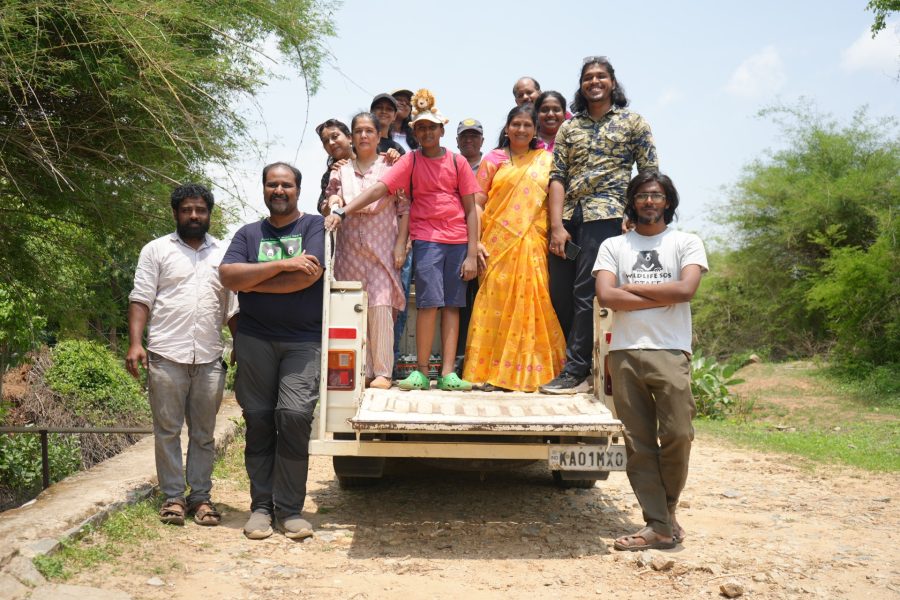Tourism is an industry that attracts people to indulge in diverse luxuries provided across the world. Be it the nearest hill station, or another country across the globe, most of us travel far and wide to explore. What we often forget, however, is the negative impact tourism has on the environment. While prioritising comfort and convenience, we unintentionally engage in activities that severely harm the natural world. You’d be surprised to know India has the world’s fourth-largest carbon footprint from tourism, with the USA, China, and Germany preceding it.
What’s the solution, you ask? While we do not encourage the idea of not travelling, here’s a simple tip: become an ecotourist!
The International Ecotourism Society (TIES) defines ecotourism as “responsible travel to natural areas that conserves the environment, sustains the well-being of the local people, and involves interpretation and education”. Ecotourism is globally recognised as a powerful tool for the conservation of biodiversity. Here are some steps you can take to become a conscious ecotourist!
Pick a Suitable Location
As an ecotourist, the first and foremost step is to choose an appropriate location for your travel. Areas that offer birdwatching, trekking and even camping, are considered to be ideal for ecotourism since these activities have a low impact on the environment. Corbett National Park in Uttarakhand is famous for tiger safaris, and is an ideal place to go because it also complies with ecotourism. Ecotourism can also be practised in Keoladeo National Park, which is considered a haven for birdwatching. Moreover, locals residing in and around protected areas welcome tourists to stay with them, which in turn provides them social and financial support.
Use Public Transportation
To make your travel environment-friendly, the next step on the checklist is to use a conscious way of transportation. And what’s more conscious than using public transportation? Buses and trains are some common ways to commute to and within the destination. While you’re at the location, you can even travel by walking or bicycling, if possible! To reach locations that are also connected by water bodies, the more eco-friendly way is to use shared sailboats, rowboats or by paddle boarding!
Your Accommodation Matters!
To be an ecotourist and travel sustainably, it is crucial to account for your accommodations. Locals have set up homestays and utilise their skills to enhance the experience for their guests. One can experience a stay at these or at guesthouses, camps or lodges. Not only does this reduce carbon footprint, it also helps the local communities to sustain their livelihoods. An ecotourist must respect local culture and lifestyle, and can engage in local practices too.
Environment-Friendly Activities
Another step to becoming a conscious ecotourist is picking tourist activities that do not negatively impact the environment. Visit places that offer nature-based activities like hiking, trekking, cycling, diving, birdwatching, exploring forests, wildlife safaris, and nature journaling. While visiting a new place, you can also spend time interacting with the local community and learning about their indegenous practices. Such activities have little or no impact on the environment, and are highly preferred by ecotourists!
Immerse in the Local ‘Way of Life’
To be an ecotourist also means to seek quality experiences by exploring diverse cultures. It goes far beyond sightseeing or even the need to capture social media-worthy photographs. In destinations that offer ecotourism, one notices how locals produce and sell handicrafts and food products belonging to that place. Women use their cooking, knitting, and designing skills to sustain themselves.
States like Uttarakhand, Himachal Pradesh, Odisha, and Kerala have succeeded in getting women and youth involved in ecotourism practices, which provides them with excellent socio-economic benefits. So, while you’re visiting these places, don’t forget to carry back a locally-made souvenir with yourself. Purchasing one would not only contribute to the local community; you would invariably be marketing that product and place while you raise awareness about them back home.
Reduce Your Carbon Footprint
While this step on your checklist to become an ecotourist may seem obvious, it is extremely important. One of the biggest drawbacks of tourism is the plastic pollution generated by tourists. Hence, our advice would be to make an extra effort and leave minimum carbon footprints! Carry sustainable items wherever possible, and switch from plastic to eco-friendly products.
You can also practise a ‘hands-off’ approach. This simply means that as an ecotourist, you can observe everything but avoid touching, disturbing or taking any natural element away with you. In other words, ‘take only photos, leave only footprints’ (not the carbon ones though!). By following the above, you’ll be putting no stress on the natural environment while you witness the serene beauty of it!
Be Inquisitive and Learn
The last (but not the least) important step is to never stop learning. While visiting a destination, remember to engage in healthy conversations with people, ask questions, and support their conservation efforts in whatever way possible. Ecotourism is a win-win strategy that has proven to be rewarding for not just travellers, but also local communities and the authorities that protect delegated areas. As an ecotourist, you indeed have a serious responsibility on your shoulders!
Wildlife SOS works in collaboration with the Responsible Tourism Society Of India (RTSOI) to encourage conscious travel in the country. The partnership launched a campaign to promote cruelty-free tourism which does not involve the exploitation of wild animals. It aims to educate foreign and local tourists to make a conscious choice and see to it that recreation does not promote wildlife trafficking. The organisation also closely works with local communities to spread awareness about sustainable tourism.
You too can help us by signing our petition against elephants being used for unethical tourism practices.





